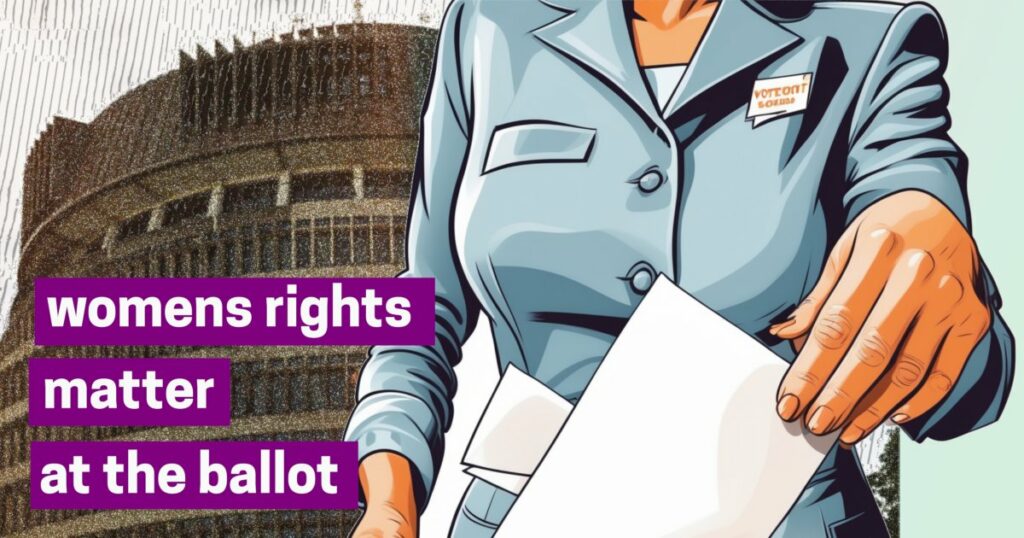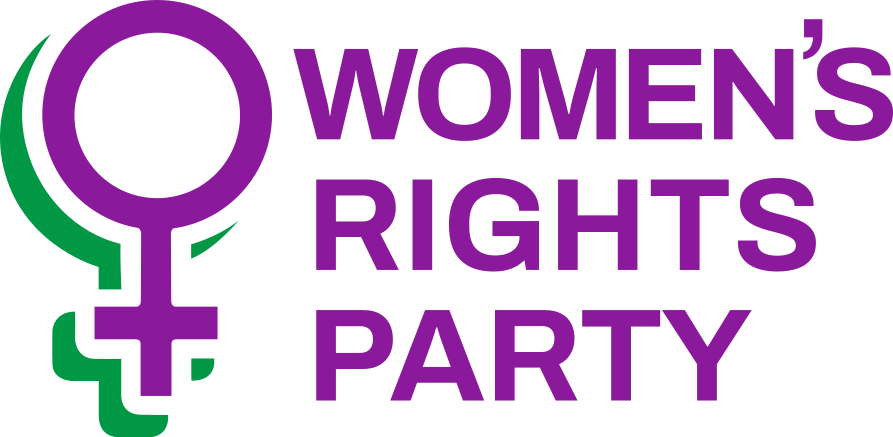The Women’s Rights Party is taking to the road on a nationwide tour from today to meet with New Zealanders concerned about the erosion of sex-based rights, just as politicians from the Left and Right are desperately trying to avoid making this an election issue.

NZ First sparked the “not me” moment for National Leader Chrstopher Luxon and Labour Leader Chris Hipkins when NZ First Leader Winston Peters announced a policy to introduce legislation to ensure all new public organisations had clearly demarcated, unisex and single-sex bathrooms which couldn’t be used by the opposite sex.
The announcement also included cuts in funding for sporting bodies that did not have an exclusive biological female category.
Luxon said anyone talking about ‘bathrooms’ was on another planet at a time when New Zealand was facing an economic crisis.
Women’s Rights members have reacted with anger. A life-long National voter said she will not be voting for the Party in October.
“An economic crisis isn’t the only crisis NZ is facing. Half the population is being erased in the name of inclusion. He’s an idiot if he doesn’t realise that half the population also votes.”
Hipkins reportedly said he was unaware of the issue. Women’s Party co-leader Jill Ovens says the issues of safe single-sex spaces and fairness in women’s sport have absolutely been raised within Labour and have caused division.
“The Labour Rainbow Sector has been putting forward policy proposals that would make toilets in all new public facilities ‘gender neutral’ for example. Women reacted to the proposal saying their safety and privacy would be put at risk and received so much abuse, formal complaints were raised by both sides to the Labour Party Council.”
Ms Ovens says an amendment from an Auckland Labour women’s meeting to restrict gender reassignment surgery to those over 18, was not allowed to make it to the Labour Party Conference floor last year.
“Not many New Zealanders would think it okay to allow teenaged girls to undergo a double mastectomy, euphemistically known as ‘top surgery’, or teenaged boys to be castrated, known as ‘bottom surgery’, so they can change their appearance to the opposite sex” Ms Ovens says.
These surgeries are irreversible and can cause life-long medical harm.
Te Pati Māori Co-leader Debbie Ngarewa-Packer and Greens Co-leader Marama Davidson have condemned the policies, with Davidson describing the policies as “hateful” and saying it was “harmful and dehumanising to transgender people to debate their existence”.
Ms Ovens says no one is denying the existence of transgender people, but all political parties currently in Parliament are recklessly ignoring protections for women and girls that are enshrined in law in the Human Rights Act as they are actively progressing rights based on “gender identity and expression” that will put the rights of women on a collision course with those of men who identify as women.
In the words of one Women’s Rights member that reflects many others on fb last night: “I refuse to vote for, or support a party that will not acknowledge my existence or rights. It’s absolutely disgusting, and actually incredibly hurtful for women. I cannot believe we are here. How did we get to a point where men’s rights as women trump and dominate any existence of rights, safety, and fairness for actual women?”
Some facts about the vote
In the 2020 Election, 2.895 million people voted. 5% of that is approximately 145,000 votes.
In the 1893 Election, 6 weeks after women won the right to vote, 90,000 women voted.
Some have noted that there are many older people supporting the Women’s Rights Party. But of those who voted in 2020, 685,000 were aged over 65 and more than half of these are women. 90% of this age group voted, compared with 75% of under 40s.
Don’t write off the Women’s Rights Party achieving the 5% threshold.
We are not showing up in the polls as the question is not being asked: “Are you going to give your Party vote to the Women’s Rights Party?”
Further information about the Women’s Rights Party
With 20 other women, we started the Women’s Rights Party in the week after Kelly Jay Keen’s visit to New Zealand, 25th March.
The violence that day was a turning point for those of us who were at Albert Park in Auckland to hear Kelly Jay Keen speak, and for everyday New Zealanders who were appalled at what happened – not only the role of the Labour and Greens leadership in inciting the violence, along with the media, but also the refusal of the Police to stop it. We learnt that we cannot rely on the Police to treat us as citizens worthy of protecting our right to assemble and to speak.
I resigned from the Labour Party that night. I had been an active member of the Labour Party, including a period on the Labour Party Council, but I had already become increasingly off-side as women’s voices were not being listened to.
In the space of less than three months, more than 550 women and men joined the Women’s Rights Party, exceeding the required 500 members in order to register as a political party.
The Women’s Rights Party says that women’s concerns about the erosion of their rights are being actively shut down by a loud and vocal minority.
We are calling for women’s and girls’ sex-based rights to be maintained and protected in law.
This Election is an opportunity for people to discuss different ideas and perspectives respectfully and safely. The academic and political questioning that should be occurring around gender has been largely shut down by cancel culture.
The Women’s Rights Party is also concerned about messages that confuse children’s understanding about biological sex by conflating the words, ‘sex’ and ‘gender’.
The use of the words to describe women such as “pregnant people” is also a hot button issue amongst women who do not describe themselves as ‘political’.
Very few Women’s Party members are actively involved in any of the mainstream parties, while others who are more politically aware are disillusioned Labour and Green voters who have found themselves to be politically homeless.
The Women’s Rights Party will give such voters an option on the ballot paper and send a message to the mainstream that this is an issue that will determine how women will vote.
The Women’s Rights Party honours the women of Aotearoa New Zealand who won the right to vote in 1893, and for this reason, the Party is campaigning under the colours of the women’s suffrage movement.
The Party is currently going through the registration process and is planning to contest the Election in October.
